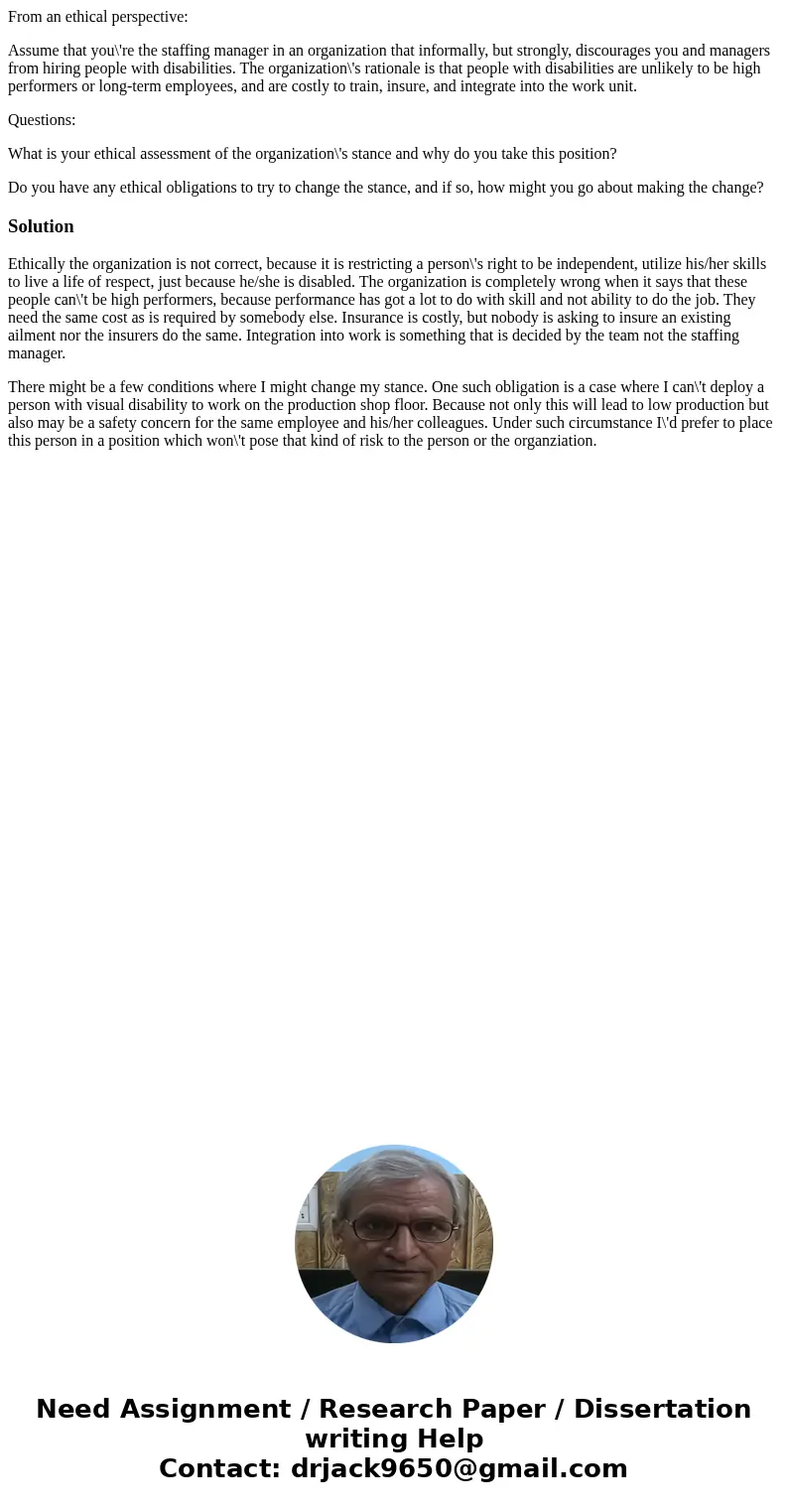From an ethical perspective Assume that youre the staffing m
From an ethical perspective:
Assume that you\'re the staffing manager in an organization that informally, but strongly, discourages you and managers from hiring people with disabilities. The organization\'s rationale is that people with disabilities are unlikely to be high performers or long-term employees, and are costly to train, insure, and integrate into the work unit.
Questions:
What is your ethical assessment of the organization\'s stance and why do you take this position?
Do you have any ethical obligations to try to change the stance, and if so, how might you go about making the change?
Solution
Ethically the organization is not correct, because it is restricting a person\'s right to be independent, utilize his/her skills to live a life of respect, just because he/she is disabled. The organization is completely wrong when it says that these people can\'t be high performers, because performance has got a lot to do with skill and not ability to do the job. They need the same cost as is required by somebody else. Insurance is costly, but nobody is asking to insure an existing ailment nor the insurers do the same. Integration into work is something that is decided by the team not the staffing manager.
There might be a few conditions where I might change my stance. One such obligation is a case where I can\'t deploy a person with visual disability to work on the production shop floor. Because not only this will lead to low production but also may be a safety concern for the same employee and his/her colleagues. Under such circumstance I\'d prefer to place this person in a position which won\'t pose that kind of risk to the person or the organziation.

 Homework Sourse
Homework Sourse